Call for Abstracts MSCA CORAL-ITN Final Conference
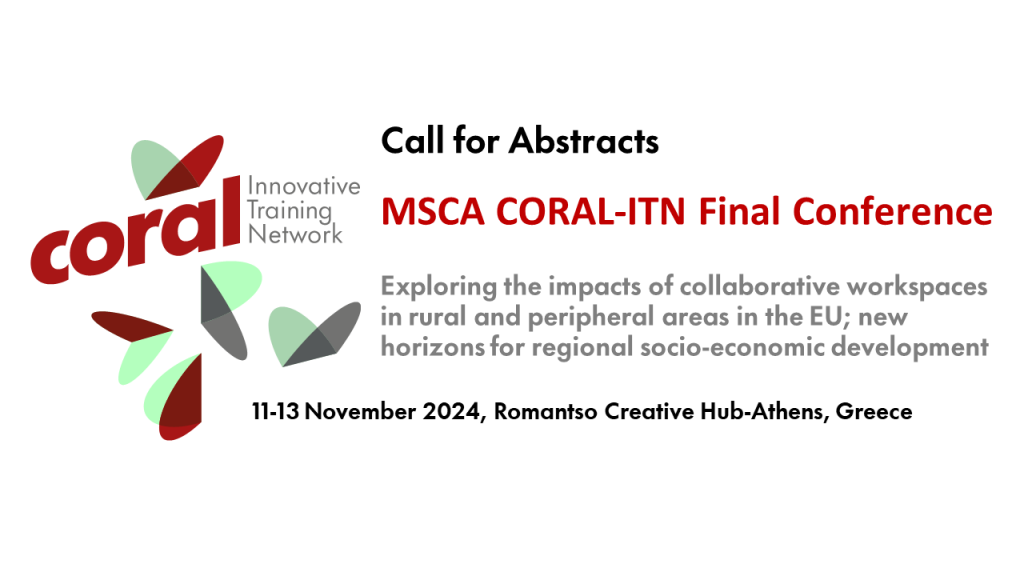
Exploring the impacts of collaborative workspaces in rural and peripheral areas in the EU; new horizons for regional socio-economic development
Valuation in Rural Social Innovation Processes—Analysing Micro-Impact of a Collaborative Community in Southern Italy

Valuation in Rural Social Innovation Processes – Analysing Micro-Impact of a Collaborative Community in Southern Italy Federica Ammaturo & Suntje Schmidt Abstract: Social innovation has been associated with contributing to ‘valuable’ rural development; however, usually, the impact of social innovation has been identified in the aftermath of its development or implementation. This might be too […]
Transforming the Creative and Social Entrepreneurial Ecosystem: The Broker Roles of Rural Collaborative Workspaces

Transforming the Creative and Social Entrepreneurial Ecosystem: The Broker Roles of Rural Collaborative Workspaces Chen Gao & Eleonora Psenner Abstract: Creative social enterprises are increasingly emerging in rural regions, motivated by a desire to take social responsibility through creative approaches. These enterprises integrate entrepreneurial activities with creative social attributes and are sometimes set in rural […]
CORAL-ITN Workshop “Collaborative spaces in Italy”
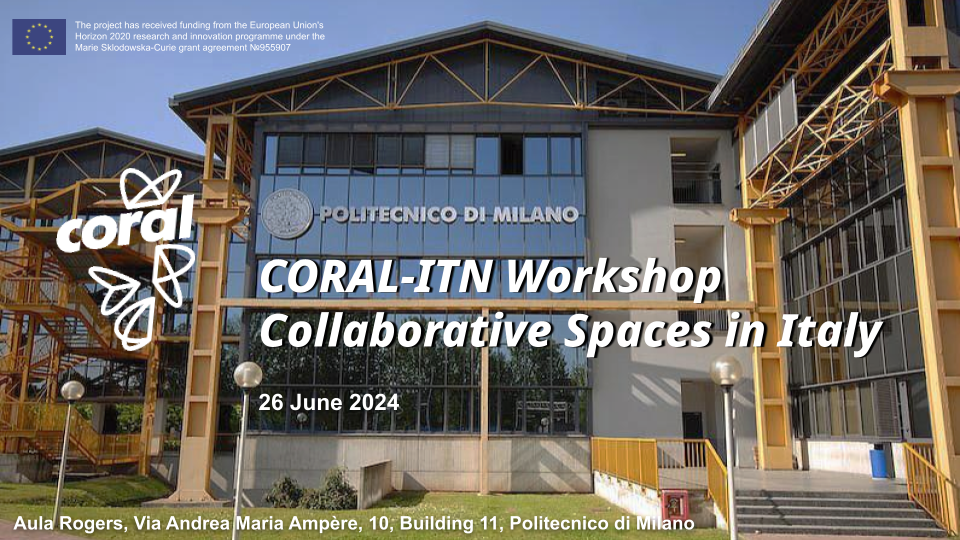
On the 26th of June 2024, Politecnico di Milano will host the CORAL-ITN Workshop “Collaborative Spaces in Italy” as a part of the National Knowledge Exchange Days (NaKEDs). The event features presentations on the CORAL-ITN project’s results and round table discussions on third workplaces and near working policies. The event will provide insights into the […]
4th Coral School Agenda
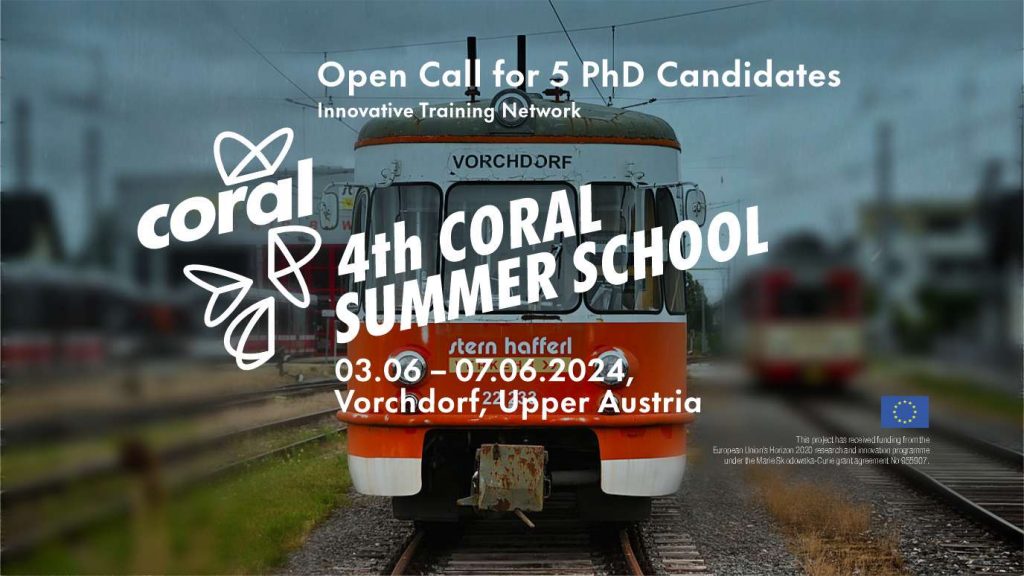
4th CORAL Training School in Vorchdorf, Upper Austria 03-07.06
Find the full agenda here
German National Knowledge Transfer Day in Dresden: Press Release
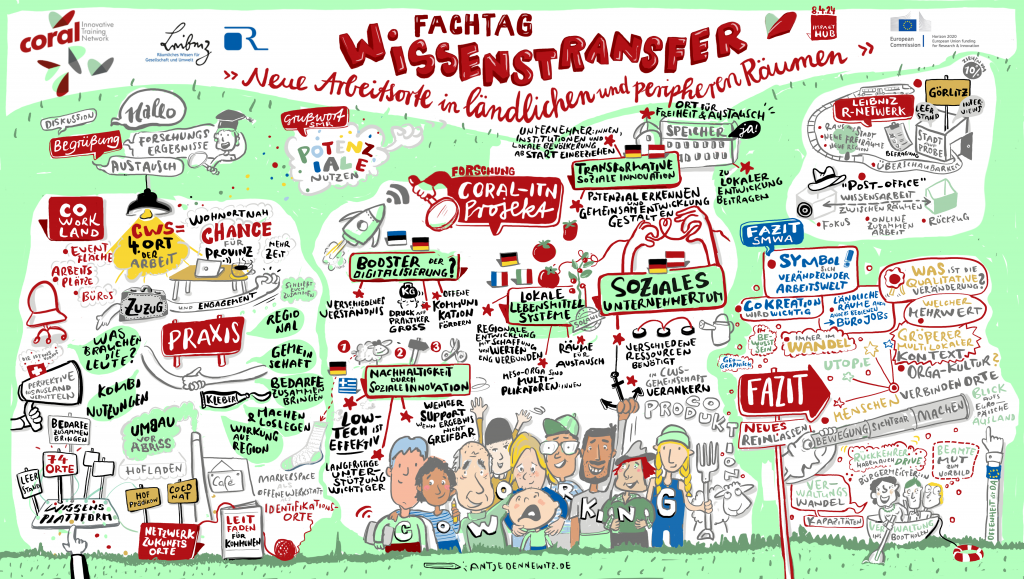
The German National Knowledge Transfer Day in Impact Hub Dresden, on the 8th of April, 2024 was a key event within the CORAL-ITN project. The symposium ”Collaborative workspaces of work in rural and peripheral areas” provided a unique platform for researchers, early career researchers, policy makers and external stakeholders to discuss the dynamics and impact […]
The CORAL-ITN survey: demographics and functions of Collaborative Workspaces in Europe
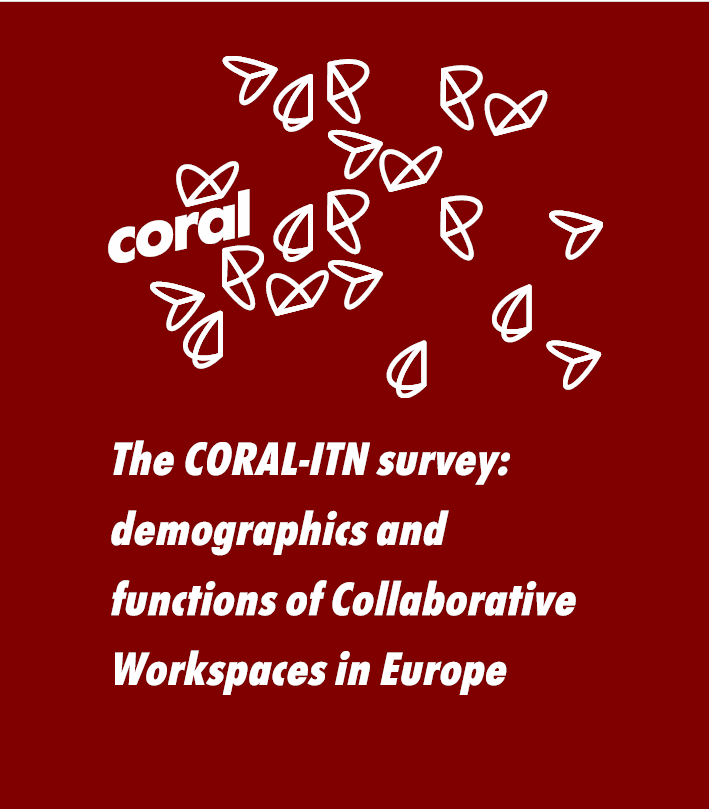
The survey was conducted in 2023 as part of the CORAL-ITN project, collecting responses from 273 managers of collaborative workspaces (CWS) from 34 European countries with the aim of unpacking their demography and measuring the different kinds of impacts of CWS. Click here to download the PDF
Open call for 5 Phd Candidates CORAL-ITN Training on 4th Summer School in Upper Austria 03-07.2024

“Policy implications and communication of research results”
4th CORAL Training School in Vorchdorf, Upper Austria, 03-07.06 June, 2024.
CORAL – ITN invites five PhD candidates to join the CORAL – ITN training school that will take place in Vorchdorf, Upper Austria.
Nuances of working together: the influence of managerial approaches on collaboration within coworking spaces

Nuances of working together: the influence of managerial approaches on collaboration within coworking spaces Costantino Romeo, Ignasi Capdevila, Barbara Da Roit, and Maurizio Busacca ”The Coworking (R)evolution: Working and Living in New Territories,” edited by Diane-Gabrielle Tremblay and Gerhard Krauss, explores the dynamic landscape of coworking spaces and their impact on work and living environments. […]
Exploring the potential of coworking spaces for quality of working life and wellbeing: a systematic review of academic literature
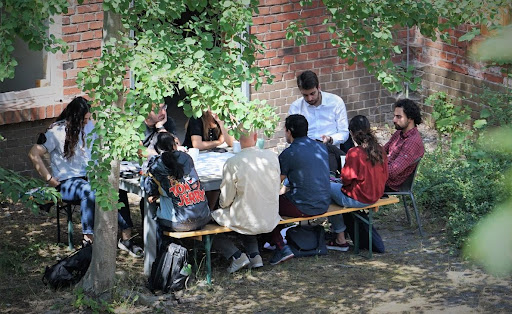
Exploring the potential of coworking spaces for quality of working life and wellbeing: a systematic review of academic literature Francesca Chiara Ciccarelli Αbstract: Coworking spaces (CSs) have gained significant attention in the last decades as an alternative to traditional offices and homes. These spaces offer a flexible and collaborative environment that caters to the needs […]